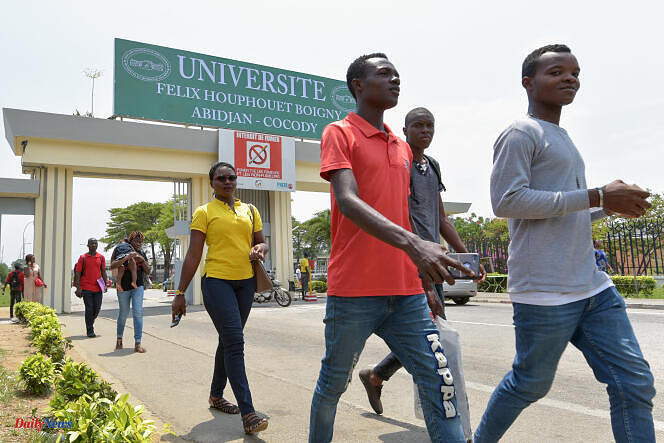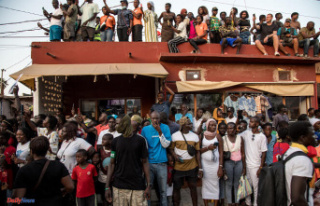Study and what next? The question torments Stanislas Konan, 24, in a master’s degree in criminology at Félix-Houphouët-Boigny University in Abidjan. The young man is already resigning himself to reorienting himself, “perhaps in IT”, in the hope of finding a job. Each year, some 40,000 students graduate with diplomas from public universities and private schools in Côte d'Ivoire. According to the latest official figures from 2019, only 31.7% of them find a job at the end of their training, an almost similar rate for those from vocational training.
The student population increases each year by 6.3% to now approach 300,000 people, but the job market is not capable of absorbing such cohorts. “More than half of our students occupy positions below their level of study,” observes Coulibaly Djakaridja, director of the Observatory for the professional integration of higher education graduates (Oipdes). A gap that the authorities intend to fill by strengthening university selection and adjusting teaching content to the needs of businesses.
Already in 2018, the African Development Bank (AfDB) warned of the risk of “jobless growth” for West African economies. “We are currently observing an insufficiency of offers in the tertiary sector which correspond to the qualification level of students,” notes Ivorian economist Yao Seraphin Prao. A trend that the higher education reform initiated in May 2023 aims to reverse.
“More practice and less theory”
To avoid seeing students swell the ranks of the unemployed (12.6% of 15-34 year olds) and those in informal employment, which concerns 90% of Ivorian workers, the programs were overhauled with “more practice and less of theory" as demanded by Adama Diawara and the country's nine public universities are now "governed and managed like businesses", summarizes the director of Oipdes. Their new status as a public scientific and technological establishment (EPAST) requires them to have “the creation of jobs, values and industrial activities” as their new compass.
This interference of the private sector in public education, decided to strengthen the employability of students, is accompanied by an increase in the admission level of the latter and the putting on hold of certain sectors that provide few jobs, the social sciences in the lead. The Minister of Higher Education wants to “avoid sectors becoming overcrowded” and calls for “regulation of flows”. This has already started with the tightening of access to the doctorate and should continue at the start of the next school year for entry into the master's degree. “If you let too many people enter the system, there is a risk of a social bomb at the exit,” he concludes.
A reform of the BTS is also in preparation for the start of the September school year. Without knowing the conclusions of the internal study it commissioned on the integration rate of the sectors, the ministry already knows where it wants to direct its young people: in the mining, agri-food, digital and technology industries. Construction. “These are the sectors that recruit the most,” asserts Coulibaly Djakaridja.
Encourage the recruitment of interns
Then comes the internship stage, a mandatory step for future graduates. For years, the State has been increasing initiatives and measures to see them become more widespread, such as the Youth Employment and Skills Development Project (Pejedec), which aims to place 68,000 young people in internships by 2026. a conference on hotel investment on February 28 in Abidjan, Youth Minister Mamadou Touré urged the private sector to “be a key player in employment and training.”
Although the law normally obliges Ivorian companies to welcome interns, the government has not hesitated to put in place tax and financial incentives to make the measure effective: companies benefit from a tax credit and only pay a third of the 65,000 CFA francs (around 100 euros) normally provided for the remuneration of young people.
A master 2 student in physics and chemistry at Nangui-Abrogoua University in Abidjan, Urielle Kone has no illusions: “Everything works on the network. If you don't have any knowledge, it's very difficult to get an internship. » Her two friends nod in agreement. One of them, Régina Bailly, is ready to give up her career as a chemist to become a web developer. She cautiously observes the stands in the distance that she is not yet sure of approaching.












